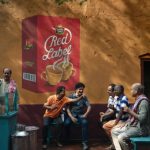Malaysians have shown that they favour a blanket ban on social media in times of crisis or during a terrorist attack. This was according to IPSOS’ latest global survey.
In the last one decade, the news media landscape has witnessed a radical change. Gone are the days when one waited with bated breath for the morning newspaper or evening news on television/radio to get the daily quota of breaking news.
Today, social media has become the main source of news supply for the world population anywhere, anytime! WhatsApp, WeChat, Facebook, Twitter, YouTube, Instagram, Blogs, News Apps and other social media platforms have replaced traditional media with a constant influx of content, with breaking stories on their feeds now grabbing instant eyeballs.
However, breaking stories can be forgotten in an instant, as humans have limited attention span, unless they get turned around and shared. So sensational news breaking, proliferation of misinformation and spreading fake news and hoaxes on social media has been found to be the easiest way to create instant buzz and ensure audience engagement for a longer duration.
In the aftermath of a series of coordinated and fatal terrorist attacks in Sri Lanka on Easter Sunday in April, the government temporarily shut down all social media platforms in an attempt to halt the spread of false information and prevent further inflaming an already tense situation.
And just last month, the Indian government shut down Internet services in the state of Kashmir after revoking Article 370 in the state. The intent of the governments in both instances of social media & Internet ban was to avoid propagation of unverified reports and unnecessary speculations, which could have created unwanted communal tensions and panic.
A month after the deadly Sri Lankan attacks, Ipsos Global Advisor conducted a survey of nearly 20,000 people across 27 countries to understand whether cutting off social media access during a crisis is acceptable to the general population at large.
People around the world are divided on whether governments should shut down access to social media during a crisis, depending on if they see the platforms as a valuable news source, or a supplier of fake news.
Six in ten global citizens (60%) opined that it is acceptable to temporarily cut off access to social media platforms during times of crisis and if there was a terror attack to prevent the spread of misinformation.
Malaysians are second in the pecking order when it comes to accepting temporary cutting of social media platforms to stymie flow of fake news in times of crisis. A whopping 75% Malaysians are supportive of a social media ban during crisis. Only India (88%) is ahead of Malaysia when it comes to its citizens favouring ban of social media during a crisis situation. Some of the other markets that strongly favour temporary ban of social media are Saudi Arabia (73%), China (72%) and Great Britain (69%
Even though it can be seen that some support exists for a temporary shutdown of social media, only half of global citizens surveyed say that they trust their national government to decide when and if it’s appropriate to shut down social media platforms.
Malaysia is the third highest ranked country (behind India and Saudi Arabia) that trusts its government to decide when to shut down social media platform. Almost two-thirds Malaysians (74%) trust the government to decide when and if it’s appropriate to shut down social media platforms to stop spread of fake news in times of crisis.
Some 62% global citizens also agree that it is unacceptable to temporarily cut off social media during times of crisis, because these platforms are a primary source of news and information for many people.
In fact over half of Malaysians (54%) agree that people are capable of
separating fact from fiction, and would not support a temporary social media ban to stop dissemination of fake news.
The study also revealed that education level has emerged to be a significant factor when it comes to trusting social media. Countries with higher levels of education are the least likely to think of social media as the most accurate and superior source of news and information. As a consequence, global citizens with higher levels of education are significantly less supportive of a social media ban.
Globally citizens are in strongest agreement that there are many ways to bypass social media bans, and therefore question their effectiveness. Overall, most of the respondents (71%) felt that a temporary ban on social media by the government is not an effective measure, because there are many ways to work around them.
Almost two thirds of Malaysians (69%) feel that social media bans are futile as there are many ways to navigate around it. Some of the markets where the view is more pronounced
are Turkey (81%), Poland (80%), Argentina (78%), Peru (78%), and Russia (78%).
MARKETING Magazine is not responsible for the content of external sites.









